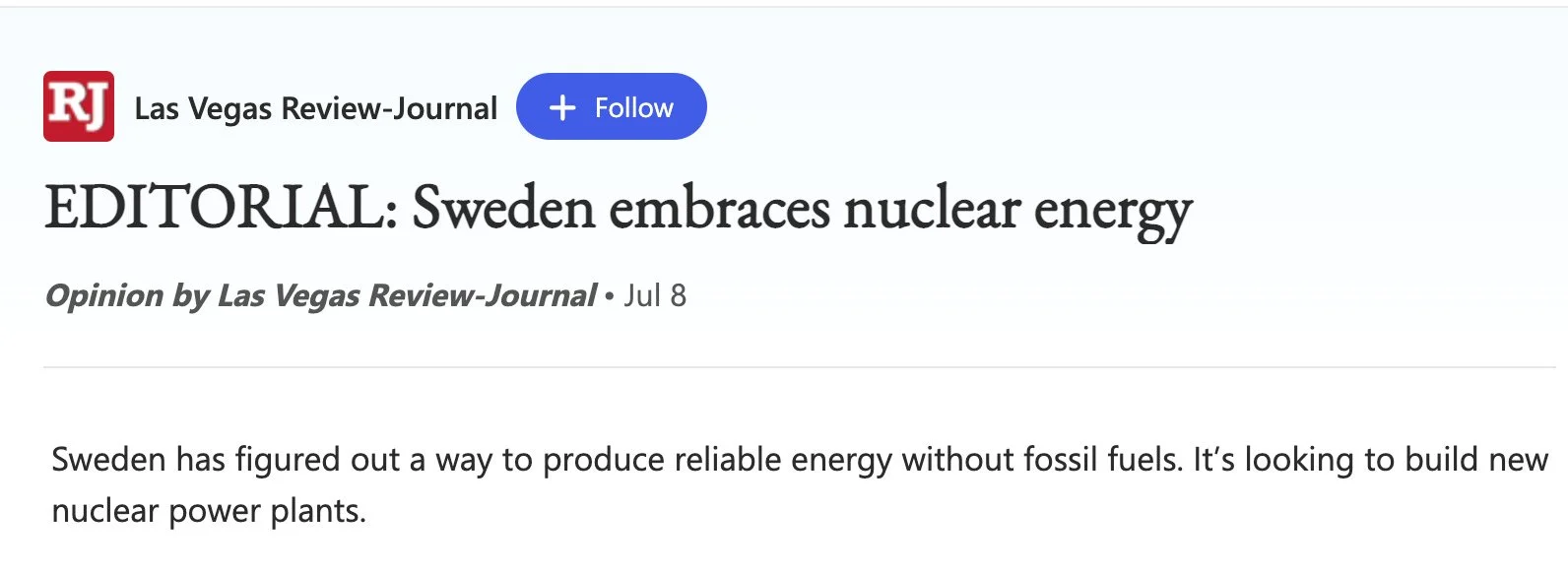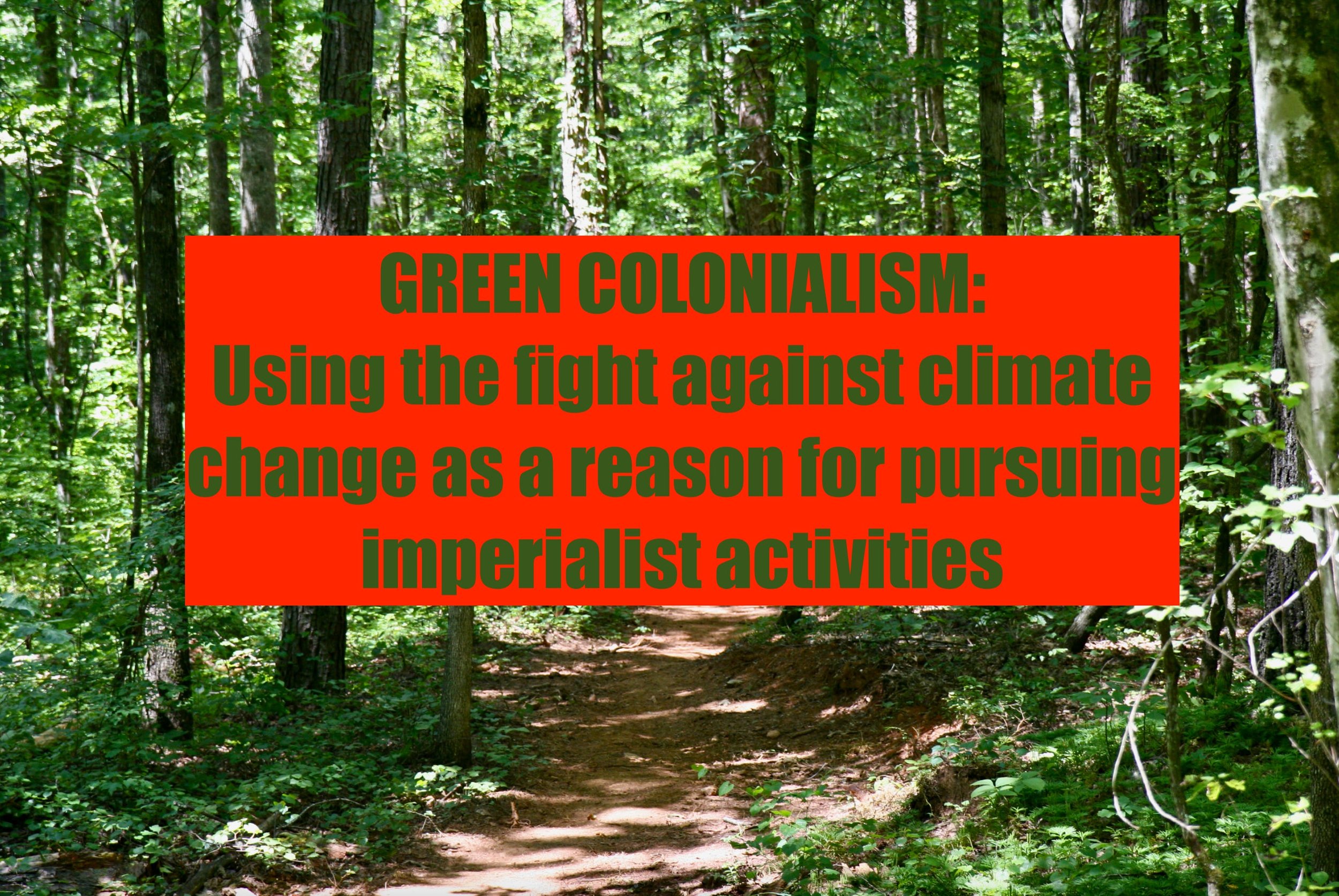"Green Colonialism" is real and must be stopped.
Part 1 of 3 on Green Colonialism and Climate Change
Leaders from so-called developing nations have a different take on global climate change policies. Many state that they are being forced to use green energy, which is expensive and produces less energy per invested capital. This will make it even harder for billions of people to escape poverty. The term being used for these kinds of policies which are now being forced upon developing nations by the World Bank, WEF, and the usual globalist actors has become known as Green Colonialism.
International Public Policy Review, May 01, 2021 “Green colonialism… or the fight against climate change as an excuse for imperialism”
(Wealthy) countries now use the fight against climate change as a reason for pursuing imperialist activities. This has been designated as green colonialism.
Nonetheless, the term ‘green colonialism’, just as ‘colonialism’, has been used to put a name on various phenomena. Daniel Butt defines colonialism as the combination of domination, cultural imposition and exploitation of one people by another (2013). Rearranging this definition, we restrict green colonialism to the domination, the cultural imposition and the exploitation of peoples by other peoples using environmental excuses…
Green colonialism, whether exercised consciously or unconsciously, is causing serious harm to indigenous populations as well as populations from the least developed countries. This issue is almost absent from the media, which can be explained by the difficulty the impacted populations have to raise awareness about their situation. It is therefore the most important fight to lead: make sure that their voices are heard so that policymakers listen to them.
Financial institutions, multilateral development banks, UN/WEF, G 20 leaders, activists and wealthy nations are all putting political pressure to stop hydrocarbon projects in developing nations. They are only lending for “green energy solutions,” ergo: solar and wind energy sources. Despite the fact that hydrocarbon, and natural gas in particular, is significantly more economical, and can provide more energy services to more people than renewables alone.
In 2021, during the COP 26 climate summit in Glasgow, the U.S. joined a group of some 20 countries that agreed to stop funding oil and gas projects in developing countries. As explained by one news outlet, the move “could take billions of dollars away from future fossil fuel production and redistribute it to low-carbon energy projects such as wind and solar. The agreement covers ‘unabated’ projects, which generally refers to fossil fuel facilities that don't capture carbon dioxide emissions... The announcement goes beyond a separate agreement by the world’s largest economies last weekend to end public financing for international coal power development.” Also in 2021, the U.S. Treasury Department issued guidance for multilateral development banks “aimed at squeezing off fossil fuel financing except in certain circumstances.”
Electricity is the key for “developing” nations (and their citizens) to get out of poverty. Energy frees people from poverty. Natural gas is the cleanest of all the fossil fuels. It is widely distributed, abundant and much cleaner than other hydrocarbon products. The article titled Natural Gas Should Be Part of the Discussion at Summit for a New Global Financing Pact By NJ Ayuk, Executive Chairman, African Energy Chamber explains:
JOHANNESBURG, SOUTH AFRICA / ACCESSWIRE / June 22, 2023 / Somewhere at the intersection of money and climate are more than 600 million Africans who don't have access to electricity, 890 million Africans without methods for clean cooking, dozens of African nations that depend on hydrocarbons to fund just about every service they provide, and African industrial development that can't move forward unless it's powered by fossil fuels.
Yet this week, the politicians, banking experts, civil society group leaders, and others who are gathering at that intersection - at a two-day event organized by French President Emmanuel Macron called The Summit for a New Global Financing Pact - are pushing an agenda that appears to be putting financing for African natural gas projects, the presumptive solution to many of the continent's poverty woes, on the back burner, no pun intended.
It has been estimated that 5 billion people in the world are wearing clothes that were hand washed. This is due to a lack of cheap, affordable electricity. Hand washing clothes is back breaking, menial work, the bulk of which falls mostly on women and girls. These is a waste of human labor. Labor that could be put to better and more productive uses. Likewise, hand pumping and hand carrying water to homes and crops is another menial task that electricity eliminates. Until a country can free its’ citizens of such labor, it can’t possibly compete with more developed nations. Solar and wind power will not get a nation below the poverty level to where it needs to be. Why should people in Africa suffer because of the idealistic climate change policies that have led to green colonialism?
Uganda's President Museveni wrote in a Wall Street Journal article entitled "Solar and Wind Force Poverty on Africa," that “Africans have a right to use reliable, cheap energy, and doing so doesn’t prevent the development of the continent’s renewables. Forcing Africa down one route will hinder our fight against poverty.”
Other leaders have expressed their outrage at the situation:
Magatte Wade of Senegal, the Director of the African Center for Prosperity, asks Europeans, "What's the difference between 'you Germans' who, when you need fossil fuels and you realize you still need it, you're going for it. Yet you're telling we the Africans, we can't do it. Is it because I'm black? Is it because we're idiots? Is it because we're inferior? We want to become prosperous nations. We want to become prosperous people, but for that to happen, access to reliable and affordable energy is central, is key."
Jayaraj says, "The reality in developing countries is that the situation here is far worse than what is being portrayed in the media and the West. The countries here are already struggling to keep up with the energy demand, and for them to experiment with green technologies would be not so wise, especially when people are still living in the dark and hospitals are still struggling to get an electricity connection and we live in poverty."
If wealthy nations truly want to help nations with high poverty rates <and reduce immigration pressure>, at the very least they would get out of their way. They would help them develop their natural gas and other hydrocarbon projects.
Foreign policies involving forcing solar energy on nation states failed in the 1970s, and it is failing now. For instance, Germany and much of the EU is in the middle of an energy crisis as their green energy solutions have failed again and again. Wind energy has also proven to be costly, uneconomical and bad for the local ecology. It is time to get real.
That is why a sound energy policy is one that embraces natural gas and yes, hydrocarbons. A sound energy policy requires that nuclear power be a large part of that solution, as hydrocarbon-based energy sources are phased out.
This is the energy future that is being embraced by many nations across the world.
Given all the other options currently available, nuclear is the one that is the cheapest, by far the cleanest (no carbon) and most logical choice. Quietly, countries that often lead the way on the energy front are turning back to nuclear as the most viable solution to decrease carbon dioxide.
and finally…
It is untenable that nations burdened down with poverty would not have the same opportunities to generate electricity, wealth and to lift their citizens out of poverty via the same smart energy solutions as wealthy nations.
The climate change initiatives which have been a failure worldwide continue to be pushed into developing nations - even as they have been shown to produce less energy for outrageous prices. These are solutions that, whether consciously or not, are designed to hurt the middle class and the poor. They are designed to keep developing nations economically challenged. This means that poor people will be the ones to suffer.
Green colonialism is real and must be stopped.
This essay was inspired by listening to the latest Jorden Peterson Podcast:
Episode Description
Dr. Jordan B. Peterson and Robert Bryce discuss the topics from his latest book, “A Question of Power: Electricity and the Wealth of Nations,” the current audacity of the zero-emissions agenda, its effects on the developing world, the feasibility of coal and nuclear power, the catastrophic problems related to wind and solar power, and the positive vision for the future we can all share, should our institutions finally drop the doomsday narrative.
For further reading, I also recommend Robert Bryce’s Substack and in particular, his recent article: “Let Them Eat Solar Panels Ex-Im’s $900 million loan for a solar project in Angola is green colonialism”
This is part 1 of a three part series on green colonialism and climate change.
Part 1: Green Colonialism
Part 2: The Greening of the Globe
Part 3: How to fight Green Colonialism using 5th-Gen Warfare









